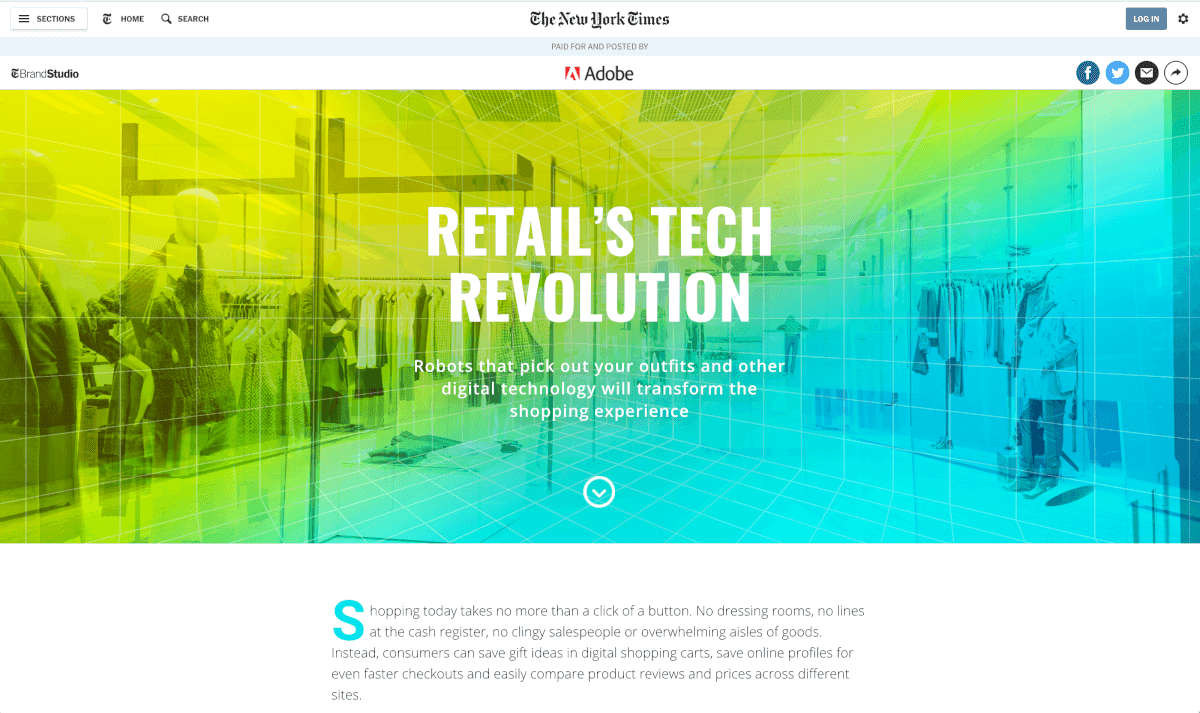Internet Advertising And The Extinction Of The Small Business

Problems With Pay-Per-Click Advertising
I want to preface this article by stating that I have no ill will towards any specific internet advertising company. I only feel a compelling sense of obligation to explain how internet advertising companies work, and allow the public to decide whether they are worth using or not.
The main focus of this article will be on pay-per-click companies. PPC's are internet advertising companies that charge you whenever someone clicks on your ad. They are quite simple to use. You set up an account with Adwords (Google's PPC service) or AdCenter (Microsoft's PPC service), and then create a campaign for your company. Your campaign will include your ads and your keywords. Here's an example of a basic three-line ad: I run a locksmith company in Fresno, CA. One of my ads reads: "Daniel's Locks and Keys - Provides Quality Locksmithing at Affordable Prices - Coupons Available". Concise, straight-forward, and easy to read.
Next, you have to create keywords. Keywords are the potential words someone would actually type into a search engine in order to find something. For example, suppose you lived in Fresno and needed a locksmith. You would go to your search engine (Google, Yahoo, Bing, etc.) and type in "locksmith" or "locksmith Fresno". A list of roughly twenty Fresno locksmiths would magically appear on your screen. You would notice that the first two or three listings have an off-white background or the word "ads" next to them. These are pay-per-click ads, and the reason they are the at the top of the list is obvious: Every time someone clicks on those ads, the pay-per-click company gets paid by the vendor who created the ad. In fact, the seven or eight smaller ads along the right side of the page are also PPC ads. The listings with a white background, not including the ads on the right side of the page, are "organic" listings.
An organic listing is totally free, and your rank (how high you are on the page) is determined by a number of factors: The relevancy of your website text (regarding the keyword used in the search), how often people click on your website, user friendliness of your website, longevity of your website, etc. Unfortunately, the average number of listings for any given search is usually in the millions. For example, I just searched for "locksmith" and there were 40 million results. These copious search results make it very difficult for a new company to be visible in an organic search.
This is the reason why PPC extensions were designed: To sell to the highest bidder, the opportunity to show up on the first page of a search. Since this is the U.S.A., a capitalistic nation, You can't fault Google, Microsoft, etc. on their business concept. It's a great way for them to make money. But if you think about it, it really puts a nail in the coffin of every fledgling company or small business that can't afford to outbid their older, more surefooted competitors.
Before the internet existed, two out of three companies failed within their first year. Currently, 80 percent of the general public use their computer to find things, rather than the Yellow Pages, newspapers, etc. Now, consider the growing number of mobile phones, i-phones, smart phones, androids, laptops, notebooks, i-pads, touch-pads, etc. Internet advertising has become a necessity, in order to be competitive in this day and age. A start-up or small company's chance of survival, substantially decreases if they are forced to compete in this venue. I also want to add, for informational value only, that 85 percent of the people that use computer search engines, use Google as their search engine. Yahoo, Bing, and the rest, all together, account for the remaining 15 percent.
To explain how you compete for your position using PPC companies, would be too complicated to explain in this article, but let's just say that the more money you can afford to spend, the higher your company will appear on a search, the higher your company appears on a search, the more likely you are to get a phone call, and the more phone calls that you receive equates to a company doing more business. Now that we all understand the basics of PPC and organic internet advertising, there is an extremely important aspect to consider: When someone clicks on your ad, it never guarantees that they will do business with your company. In fact, I run twelve companies, ranging from dry cleaners to pet food stores, and on average, for every 10 clicks I receive, only 2 reach fruition in the form of a sale. However, I still pay for all 10 clicks regardless of how many produce revenue.

Unfortunately, to better understand this concept, it's necessary to do a little math. Suppose, for one company, a click costs 50 cents and an average sale grosses $100. That means, for every 10 clicks I receive, I would gross $195: 2 sales X $100 (or $200) minus 10 clicks X 50 cents (or $5). However, clicks can cost a great deal more than 50 cents, depending on the competitiveness of you industry. For my locksmith company, a click costs $20 and the average sale is $150. Using the same formula above, for every 10 clicks I receive, I would gross only $100: 2 sales X $150 (or $300) minus 10 clicks X $20 (or $200). After my expenses (taxes, wages, insurance, phones, etc.), I actually lose money.
If the cost of a click is so expensive that it offsets all or most of your revenues, then you have do something to change it. I determined that the key change was to increase my sales-to-clicks ratio. When I initially saw that I averaged only 2 sales for every 10 clicks, I assumed that it was commonplace, and just chalked it up to the cost of doing business. When my company began to lose money, I had to figure out exactly what was going on with those other 8 clicks. What I found out will shock, amaze, and enlighten you.
I found a service, that monitored in real time, everything that I would ever want to know about the origins of my clicks. For my Fresno locksmith company, I saw that there were clicks emanating from places including San Francisco (100 miles from Fresno), Los Angeles (200 miles away), etc. The probability of those clicks generating revenue are slim to none. To avoid these erroneous clicks, the PPC company allows you to narrow the audience for which your ads are visible. Subsequently, I learned how to show my ads to computers that are physically located in Fresno. Avoiding these "out-of-my-service-area" clicks accounted for 1 paid click from the 8 clicks that were unaccounted for.
Now , I had to account for the remaining 7 clicks. Of course, there are additional services that give you real time data on every call you receive on your business phone. So, I could see what time the click occurred, and determine if a phone call was made to my company around that same time. I concluded that of those remaining 7 clicks, 2 resulted in phone calls to my company, but the sale was not closed due to various reasonable circumstances. That left 5 clicks unaccounted for. Considering that this was a locksmith company, I really tried to think of reasons why 5 out of 10 people would click on my ad and then not even call my company. Maybe they needed a locksmith, clicked on my ad, and then found their missing key before they picked up the phone to call. Maybe they were searching for a friend of theirs named Luke Smith, my ad came up, and they clicked on it by mistake. Or maybe they were looking for a particular locksmith company, their cat jumped on their keyboard, and my ad was clicked on.
For me, none of these theories held water, especially since we're talking about 5 out of every 10 clicks. I had to delve further into this conundrum. The search origin service that I was using, also provided me with the internet protocol (IP) address for each clicker. This IP address is like an ID number for your desktop computer. I noticed that the same IP address was responsible for multiple clicks on multiple days. I noticed that many of these same IP addresses, were responsible multiple clicks on multiple days. And, of course, none of these clicks resulted in a phone call. The conclusion hit me like a ton of bricks. My competitors were clicking on my ads in order to cost me money in advertising. Through a lengthy and painstaking investigation, my conclusion was ultimately proven to be true.
Since I was using Adwords, I made them aware of the situation, and asked them to credit me for said unwarranted clicks. To my chagrin, they did not credit me any money, but merely offered alternative reasons as to why the same IP address might legitimately click on me multiple times. When I showed them one particular IP address that clicked on me 14 times within a 5 minute time frame (costing me $300), they said that it was possible that this "customer" was shopping for the best price, and that was why he kept going back and forth to my website. When I told them that we never even got a phone call, they gave me countless explanations as to how this could happen. Every time I gave them a suspicious scenario, they gave me a reason for its validity being in the realm of possibility. Every time I asked for a credit, they asked for proof (phone logs, internet monitoring service logs, etc.), in order to help them investigate my allegations. Every time I provided them with these logs, they said that other company's logs were unreliable and they could not make any decisions based on them. When I asked to purchase the same monitoring system that they used, to insure reliability, they said that their monitoring service was not for sale. In other words, they would not let me use the only service whose data was reliable, yet would not rely on any another service's logs. Very provocative.
I was hemorrhaging money, and Adwords was unsympathetic towards my situation. On one hand, they were getting paid for all of these suspicious clicks, so it was in their best interest to justify them. But on the other hand, I was stuck between a rock and a hard place. If I stayed with Adwords, then my competitors would continue to click me out of business. If I switched to another search engine, I would take myself out of 85 percent of the internet advertising market. Neither of these options sounded appealing to me. I tried Pay-Per-Call companies, which only charged you if you received a phone call. However, in a ruthless industry, competitors will go so far as to call you with no intent on giving you business. In fact, before an idea emerges for safeguarding unscrupulous business practices, there is already another idea brewing on how to get around it. Subsequently, I decided to sell the locksmith company, and let the new owners deal with the puzzle of PPC companies.

For better or worse, this is the world we live in. In my humble opinion, there is only one clear answer: If you're involved in an industry that has the propensity for corruption (not that your company is corrupt, but that corruption appears in the industry), stay away from paid internet advertising. Maybe this article will illustrate to PPC companies that they must improve their monitoring systems and be more diligent in discouraging fraudulent clicks. I looked over the spreadsheet for a law firm that I run, and saw that over a three year period, I spent $100,000 on internet advertising. When I researched further, I determined that $80,000 was spent on competitors' clicks. I paused the PPC advertising for that company, and its bottom line has since improved.
I anticipate a fall-out of PPC use, once everyone understands the way in which it hurts small businesses. I am not as much anti-PPC as I am pro-small business. I wrote this article in order to help small businesses avoid paying unnecessary expenses to monopoly-like conglomerates, whose only concern is their own bottom line. Hopefully, this awareness will put an end to the recent decay of the "American Dream."
© 2012 Daniel Marcosi








